What Does free contact Mean?
Being “free contact” with our otters means that we, as keepers, share a space with them without the use of a barrier. In the past, we have focused on training through fencing due to the natural strong biting capabilities of river otters. After months of training, I have been able to build a positive relationship with our two otters, Rocky and Piper. There is a level of trust and comfortability that can be gained between an animal and their trainer. Being able to share space with the otters allows for a vast number of training and health benefits. For example, we can more easily ask them to enter a crate in cases of emergency moves, or for routine medical procedures.
Meet our otters
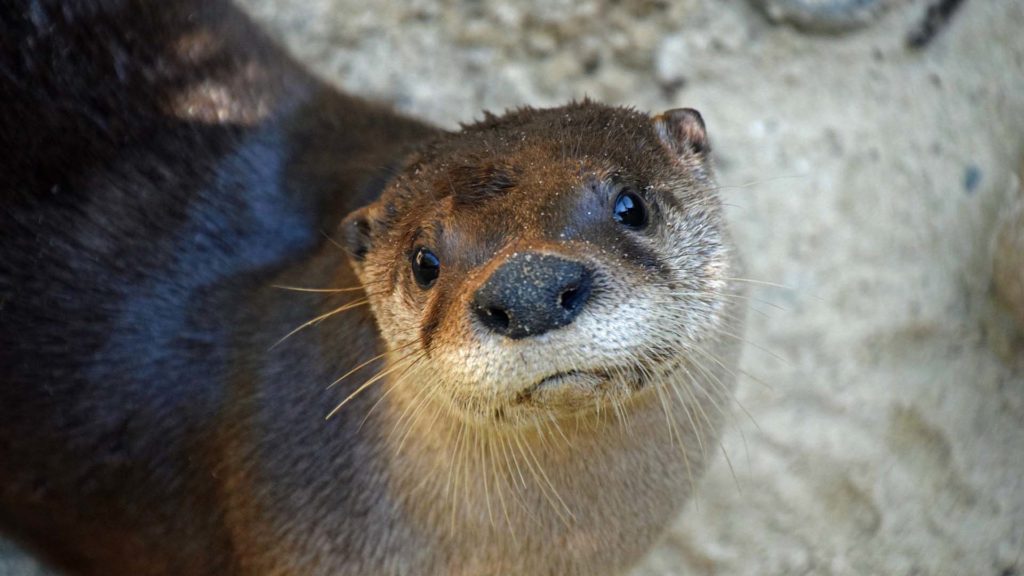
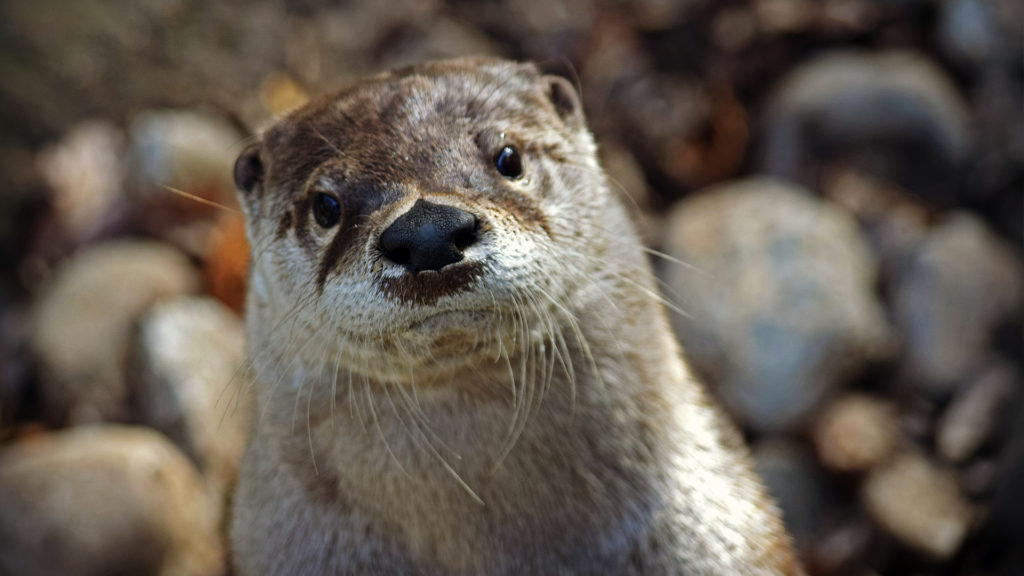
Piper, our four-year-old female otter, joined EPZ in June 2020. Piper is spunky and full of energy, so she requires intricate enrichment and plenty of physical activity. Rocky, our seventeen-year-old male otter, is a phenomenal laid back roommate who enjoys lounging around and occasional naps. Their ages can limit play time between them, as Piper’s energetic nature causes her to spend more time swimming and running around their exhibit space.
Free Contact training
During training sessions with Piper, she is asked to travel to different parts of the exhibit to present behaviors, such as going down the slide, traveling through weave poles, stationing on a stump, running through tubes, painting on canvas’, and entering her crate. A majority of our animals’ trained behaviors focus on specific medical procedures, such as receiving an injection, blood draw training, and targeting. Our free contact training has the goal of keeping our animals mentally and physically stimulated, which is an important part of their health and wellbeing. The type of training that is performed at Elmwood Park Zoo is called “Operant Conditioning”. Our animals learn through positive reinforcement. This means that they are rewarded by receiving their favorite foods or parts of their diet when they carry out a behavior that we have asked for.
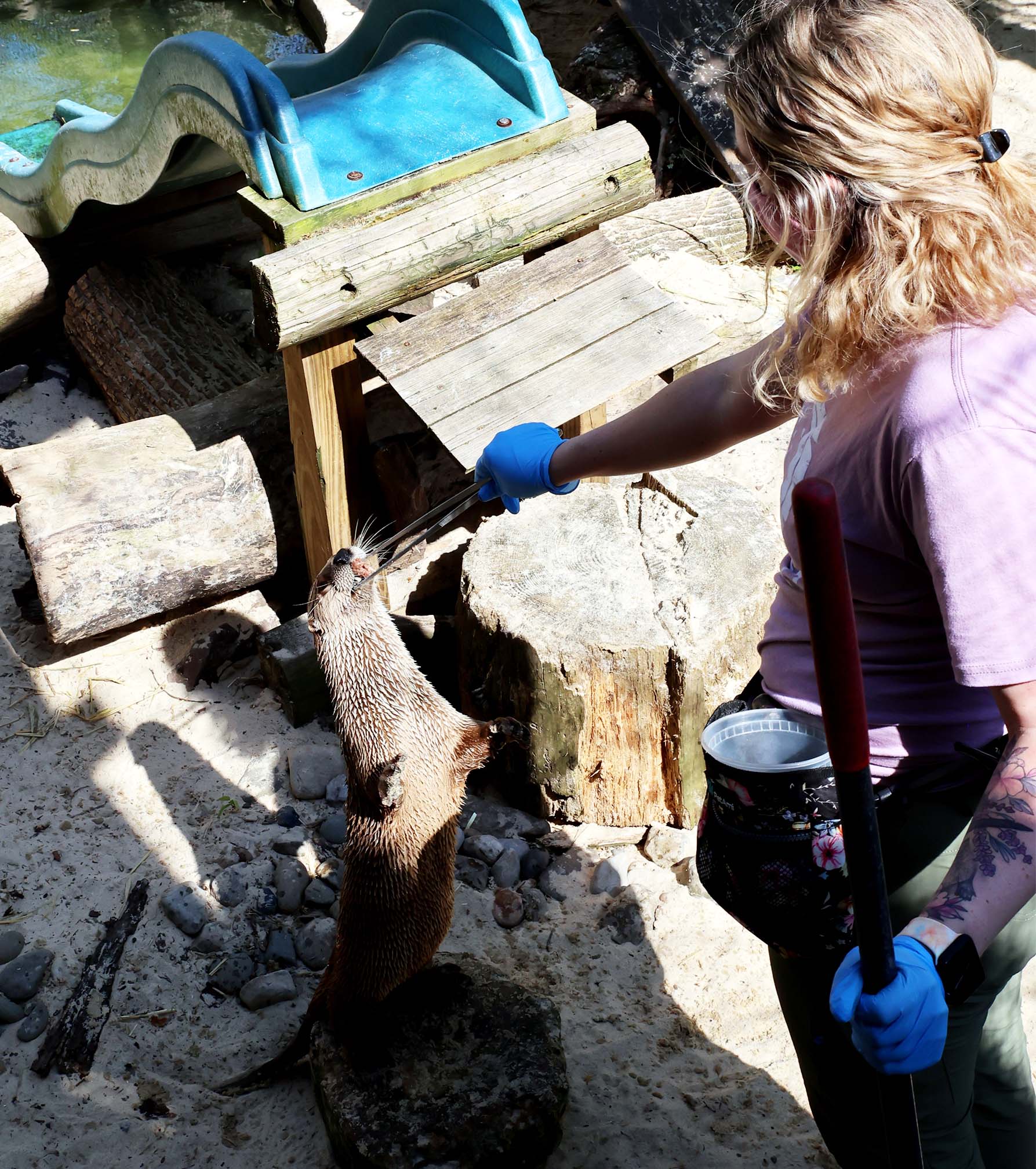
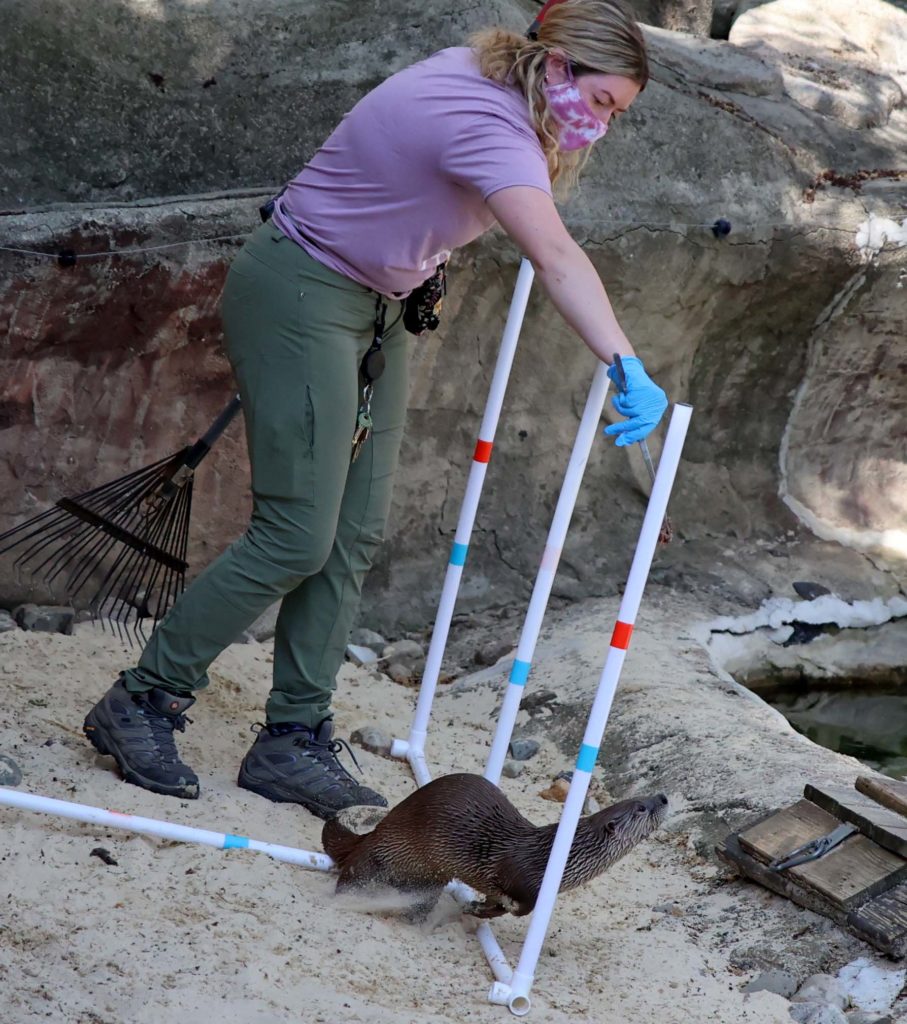
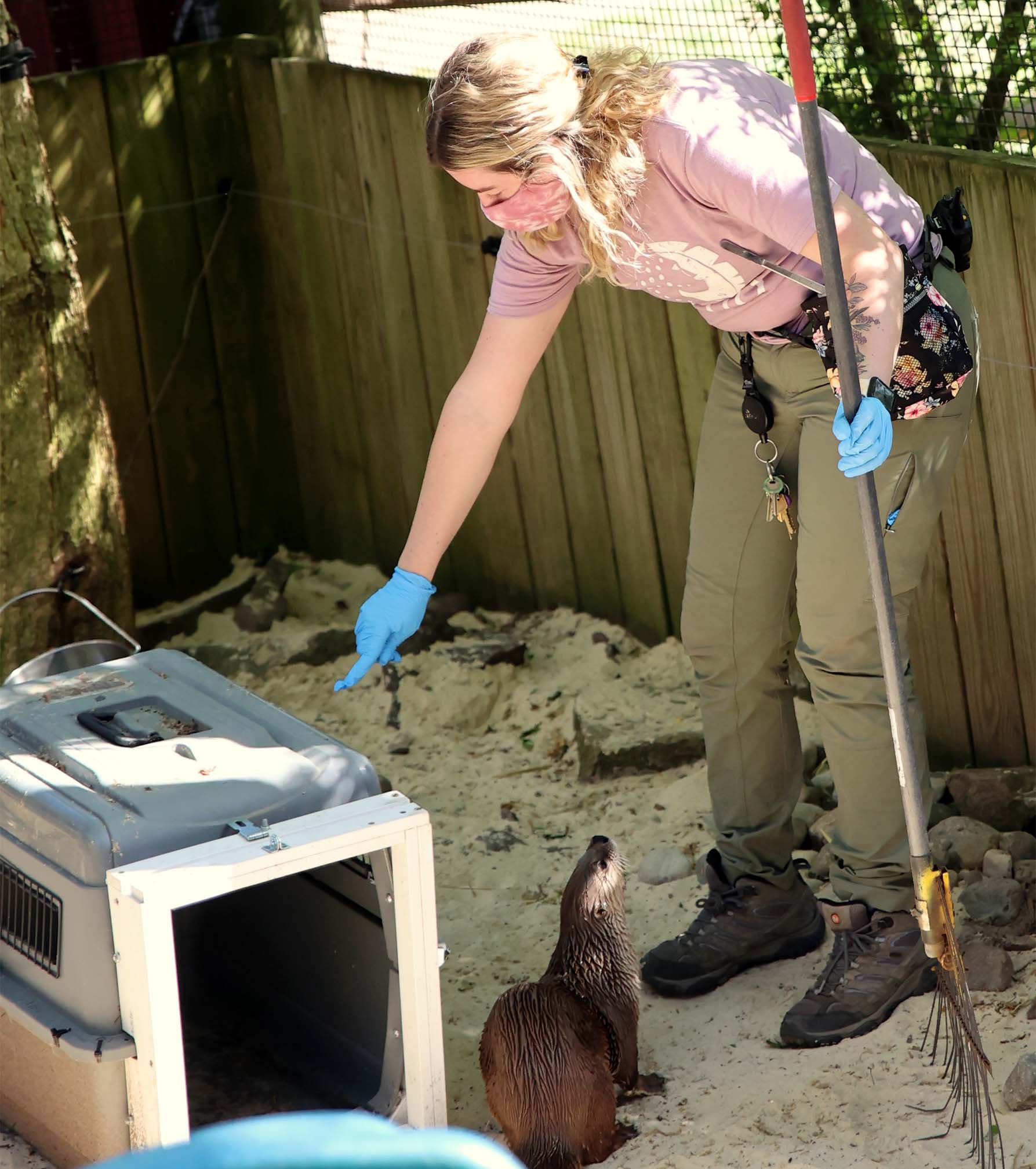
Rocky and Piper always have the choice to participate in their training or to walk away from a session. However, they appear to enjoy the stimulation and rewards that they receive for participating. We take precautions during the training sessions, such as multiple keepers being present, and I carry a tool with me in case I need to block an otter from approaching me further. We have written procedures for the training sessions to ensure that both the trainer and otter remain in a safe environment. Both otters have surprised us with their intelligence and ability to learn quickly. We plan to add to the number of behaviors that they can learn in the hopes to continually improve their welfare.
Written by Alexandria Eging, Zookeeper (Area Lead – Habitat HQ; Aviary/Pond) at Elmwood Park Zoo
Photos by Janet Miner

